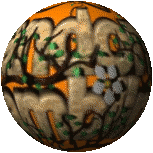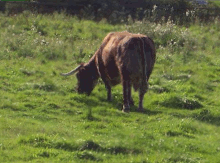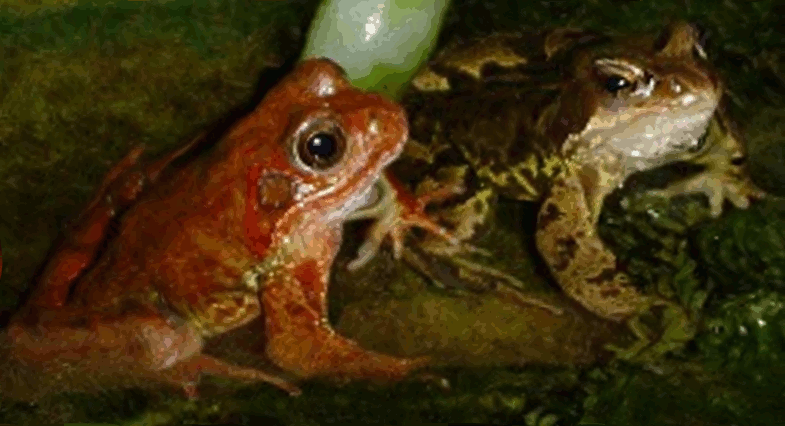It’s amazing to watch animals, birds and insects whenever they choose to build anything. Their precision, skill and knowledge of what works best leaves man at the very bottom of the construction master class. I was looking forward to seeing the end result of the little wasp nest that sat on the ceiling in the second compartment of my insect house. This pleasure was ruined. Something early in the morning had torn the bottom and side completely off. It may have been a bird – many, such as blackbirds and robins enjoy a fat, juicy grub for breakfast. It could have been a squirrel – there are several greys that run the course of the tree lines. It may have been a rat. Whatever it was the damage was devastating. It didn’t put the wasp off its stride it worked furiously all day and well into the night doing its best to make good the repair. It was worn out but still trying to work at 11.00 pm – I do not know what time it eventually stopped for the day. In the morning, I went to see how much repair had been completed. Sadly, the something had returned and knocked down the remainder of the chambers just leaving a mantle shell attached to the ceiling … there was no sign of a wasp … they had gone!


Wasp working as night approaches
















































6 comments:
Too bad you didn't get to see what it was that did all the damage
That's sad. To work so hard just to have it torn down. Will they return?
Ann, I am curious as to what creature actually did the destruction but also I would have loved to have seen the nest completed. As far as I was able to ascertain there were only two wasps involved in the making of the nest. Climate change and the extended Winter plus other unknown factors have killed off masses of pollinating insects - so they really need all the help we can give them as we are dependent upon their survival to pollinate our food crops world wide.
Did you realise that honey bees alone pollinate 40% of all of man's eating crops and honey bees are dying off at alarming rates.
People are suggesting that we should all perhaps either have a hive of our own to help to increase numbers or adopt hives to help bee keepers extend their honey farms.
Glenna, It is very doubtful if they will return having their nest destroyed twice. I hope that they will build another as these are marvellous wasps that feed off the little garden pests such as greenfly, blackfly, etc - they are therefore very welcome in my garden.
I have had a nest (much larger last time) of them before and because they weren't aggressive, I didn't even know that they were there. They made their nest in some honeysuckle near to the back door but they never came inside the house and they didn't buzz around me whilst I was in the garden. They did help the ladybirds munch through a massive amount of aphids though!
Oh...I absolutely hate yellow jackets...I'm allergic to them. But what an interesting perspective to see them in. Pretty cool! Still give me the willies, though!
Alterity, I know it is often a difficult task but a very wise person once said to me - everything is here for a reason and no matter how terrifying or ugly a beast may appear to be the Earth would be a much poorer place without it. There is really only one major exception to this in the insect world, I think, and that is the mosquito and that is only because mosquitos singularly kill more people in the world than every other means put together. That in itself is totally frightening - to think that they even kill more people than wars, germs, diseases ... so perhaps the world would be a better place without this particular insect but we can't really afford to lose any more. If we want to eat then crops must be fertilised and insects are required to make sure that this happens!
Post a Comment